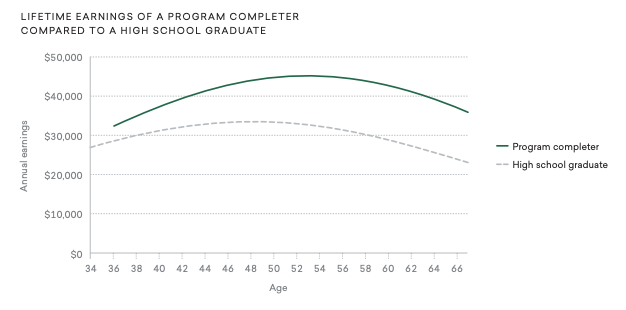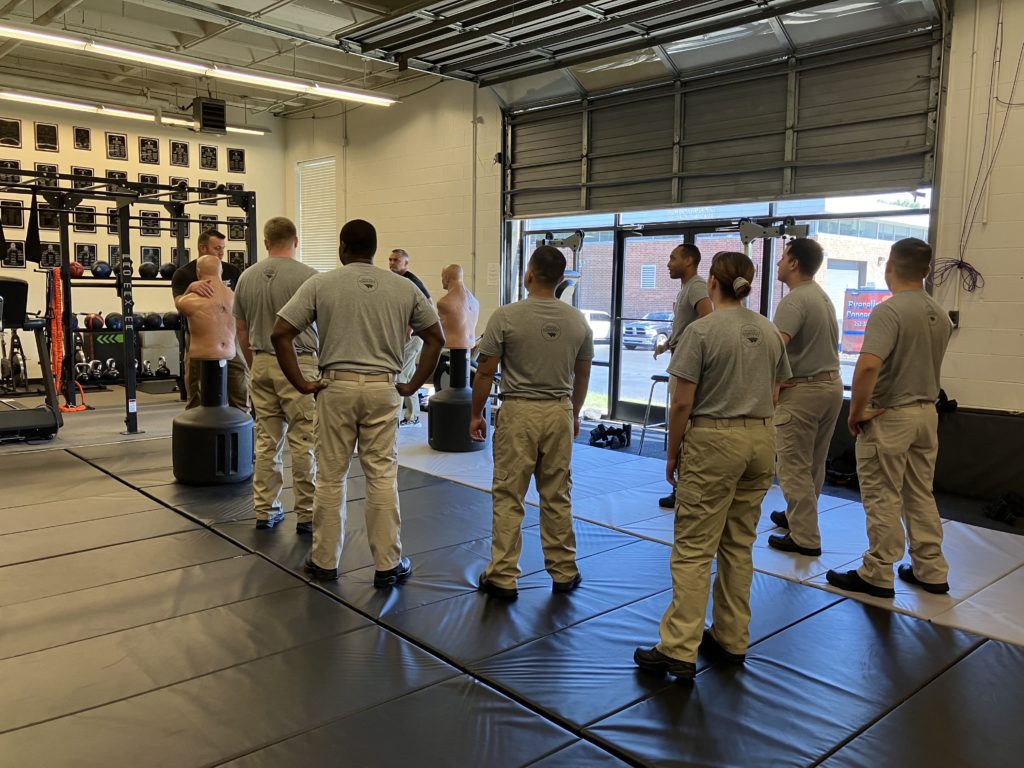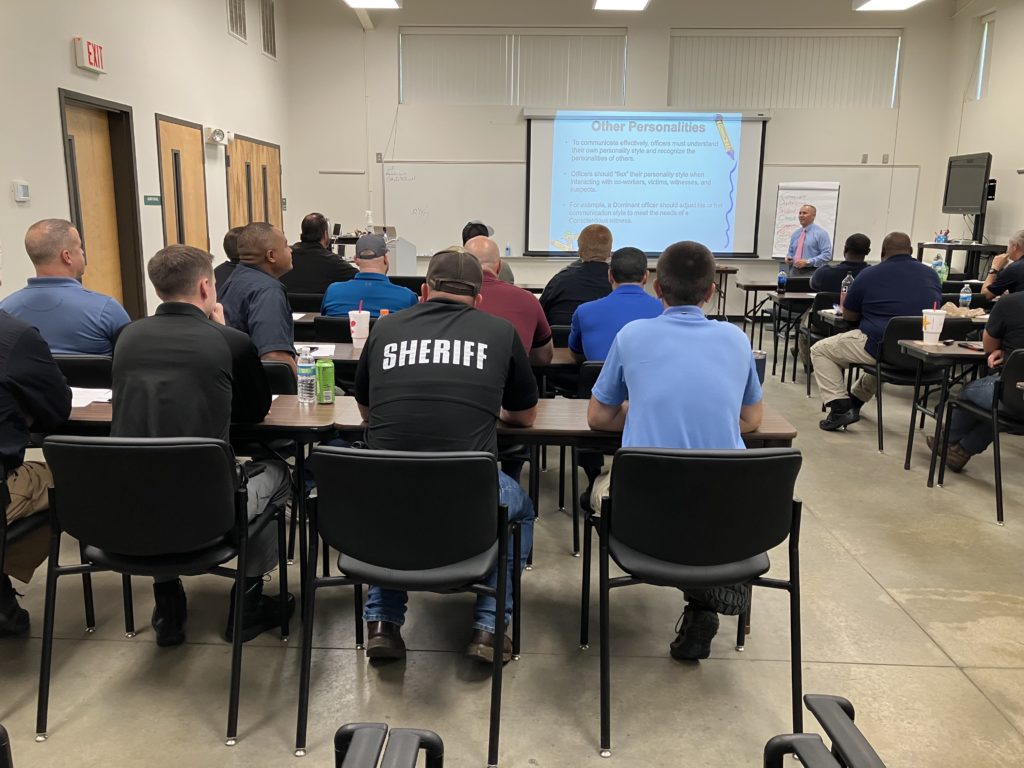
Share this story
- "This is life changing for some of these guys coming through here. They go from having a job working who knows where to having a career that actually has a salary with benefits that can change their life permanently." #impact58
- Over their lifetime, students coming out of @wccwilsonnc's public safety program increase their earnings by $277,900. #impact58
|
|
On a sunny Tuesday afternoon, Demetrice Davis drove from his home in Wake Forest to Wilson Community College to visit his former instructor in Basic Law Enforcement Training (BLET), Captain Billy Radford. Davis completed his BLET training two years ago and is now a member of the North Carolina State Highway Patrol.
“It’s a great program,” Davis said of Wilson Community College’s BLET. “It changes your life once you get here.”
When asked what he loved about the program, Davis pointed at Radford and said, “Him.”
Radford says it’s common for former students to come back and visit, and he gets invited to former students’ graduations and weddings.
“It felt like a family,” Davis said.
Students who’ve gone through the public safety program at Wilson Community College (WCC) contributed $9.2 million to the Wilson County economy in fiscal year 2019-20, according to a recent economic impact study from Emsi Burning Glass.
“This figure represents the increased wages collected by former students active today in the county workforce as a direct result of their education, the increased output of businesses that employ these students, and the multiplier effects that occur,” the report states.
WCC’s public safety program leads to a variety of occupations, including police and sheriffs patrol officers. According to the report, the median annual wage in these occupations was $52,583 in 2020.
Over their lifetime, students coming out of the public safety program increase their earnings by $277,900, leading to a return on their investment of $5.40 for every dollar they spend on the program.

“This is life changing for some of these guys coming through here,” said Darlene Hall, director of law enforcement training at WCC. “They go from having a job working who knows where to having a career that actually has a salary with benefits that can change their life permanently.”
Davis said he is an example of this.
“My family and I, we didn’t come from much,” Davis said. “It did change my life.”
According to the North Carolina Department of Public Safety, the starting salary of a state highway patrol trooper is $37,323 with a salary range of $44,000 – $64,202.
Davis was hired by the Oxford Police Department straight out of BLET and later decided to pursue a career as a highway patrol trooper. Hall said most BLET candidates are hired, and some given signing bonuses, before they even finish the program because there is a shortage of police officers across the state.

In addition to BLET, which students must pass in order to become a police officer, WCC runs hundreds of law enforcement training courses for current officers every year at their Coastal Plains Law Enforcement Training Center.
Hall said they train officers from all over eastern North Carolina. The day I visited, WCC was running a first line supervision course and a detention officer certificate course. In the parking lot, you could see patrol cars from Franklin, Greene, Wayne, Craven, Lenoir, and several other counties.
Last year, WCC trained 2,700 officers in 186 classes, Hall said. Some classes are a day or two while others are weeks long. The state mandates 24 hours of in-service training per deputy per year and 18 hours of training per detention officer per year, which WCC provides as well.
Hall said WCC runs more law enforcement training classes than any community colleges east of Raleigh, which she attributes to the relationships they’ve built with instructors and agencies across the state.

These courses contribute to the program’s economic impact in Wilson County, Hall said, because every officer coming from out of town is spending money on food and accommodations in Wilson.
“They’re spending money here that I know is coming from outside the county,” Hall said.
The public safety program is just one part of WCC’s total economic impact. The economic impact analysis conducted by Emsi Burning Glass found that as a whole, WCC contributed $81.1 million in added income for Wilson County in fiscal year 2019-20. This economic impact means one out of every 35 jobs in Wilson County is supported by WCC and its students.
Correction: A previous edition of this post misspelled Demetrice Davis’ name. It has been corrected.




